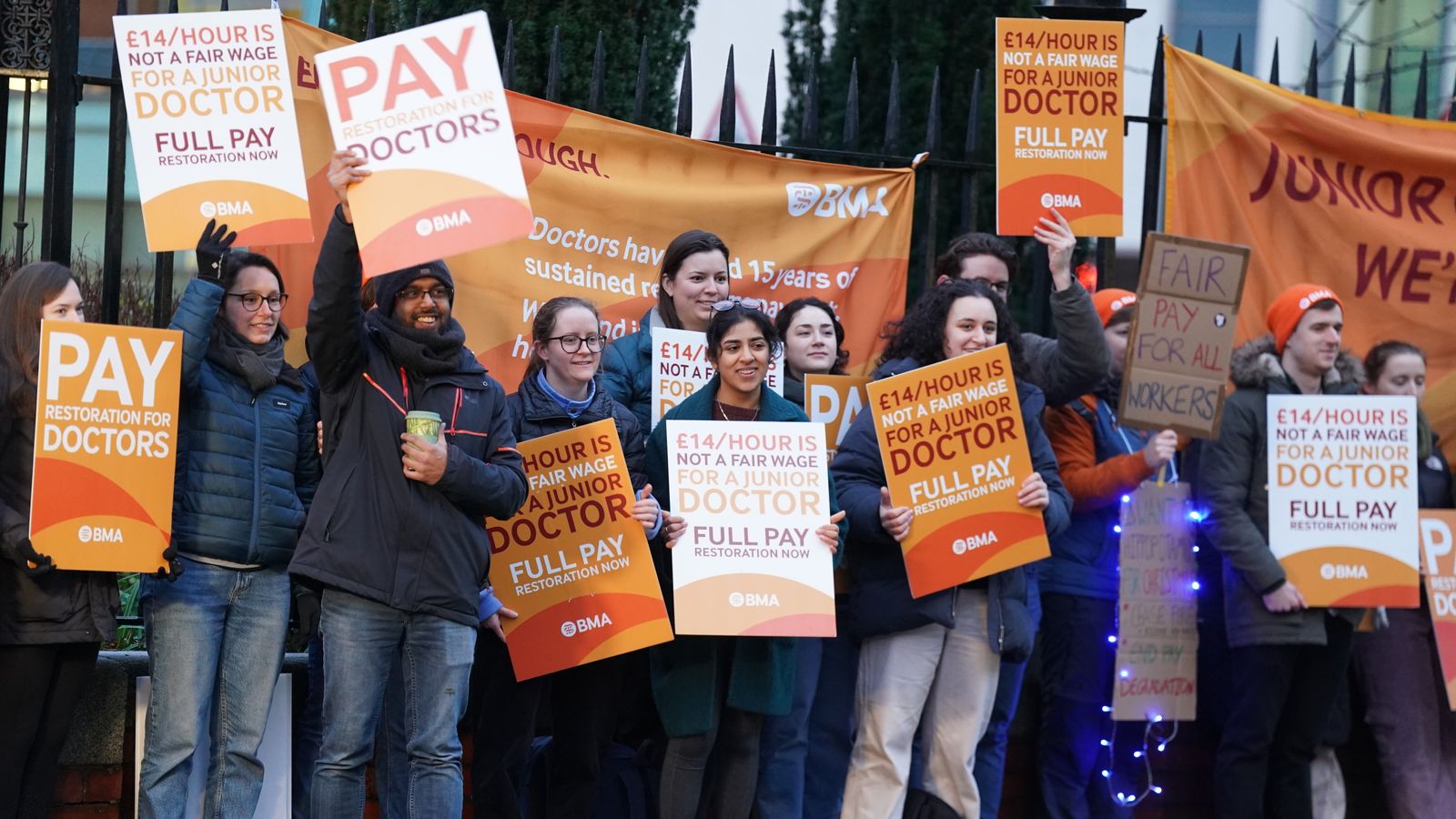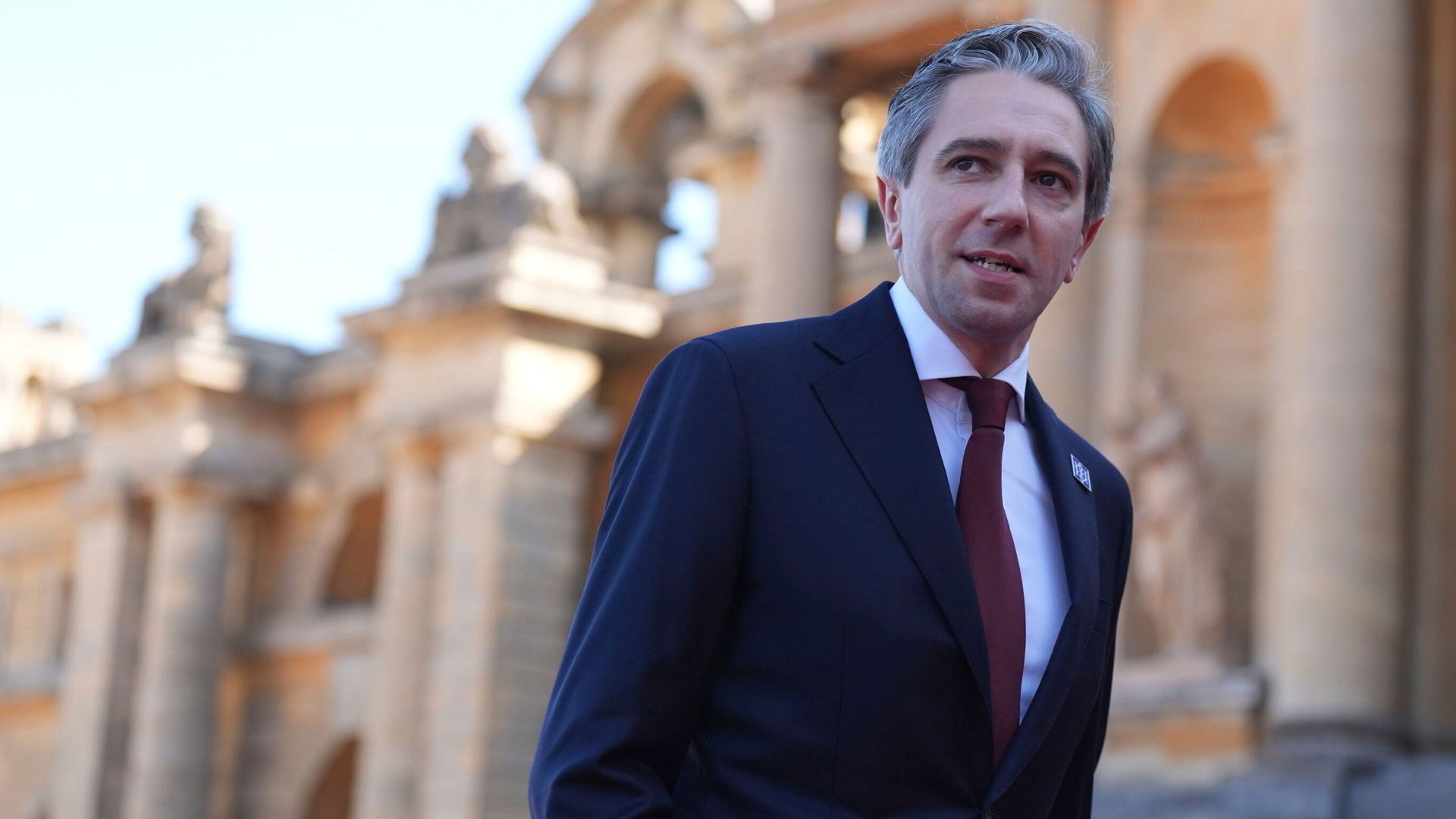A number of hospitals have pleaded for junior doctors to return to work as the longest strike in NHS history continues.
Pleas like this are known as derogation requests, and are offered to a union member or service to exempt them from strike action to ensure patients are kept safe – which is what hospitals are claiming to fear.
Leading medics have warned that NHS patients will suffer “significant harm and trauma” in coming weeks as the service faces a “perfect storm” of pressure.
More than 20 derogation requests have been submitted to the British Medical Association (BMA), but so far none have been approved, as the union accused the service of “undermining” the derogation process.
When making such requests, NHS trusts are expected to show they have “exhausted” all other sources of staffing before recalling medics, but the BMA claims some have refused to provide evidence that these steps have been followed.
It suggested that the requests were being made due to “political pressure”.
The six-day walkout by junior doctors – who are members of the BMA – started on Wednesday, as part of the ongoing dispute with the government over pay.
A junior doctor under the NHS system is any medical school graduate with between one and nine years’ experience.
Two NHS trusts across England have declared critical incidents, while Lewisham and Greenwich NHS Trust, submitted a “safety mitigation request” calling for additional doctors to work as its two hospitals face “very high levels of patient demand”.
Please use Chrome browser for a more accessible video player
‘Undermining strike action’
In an interview with Sky News, Dr Emma Runswick, deputy chair of BMA, claimed that the union has received more derogation requests compared to any other strike action that have “incomplete or blatantly inaccurate information”.
She said the union thinks it is a “misuse of the process and is undermining strike action by doctors”.
She said one trust had sent 12 requests alleging that they had no senior doctors in the paediatric department, no consultants, and no specialist (SAS) doctors, but when visited, Dr Runswick claims there were enough consultants for both emergency and critical care paediatrics and non-urgent work.
“We really value patient safety, we want this process to work well, if we are receiving incomplete, inaccurate information, or if it is being used to prop up services that frankly are often cancelled and rearranged in normal times… we cease to be able to trust it for those times when, when really it’s desperately needed,” Dr Runswick said.
Read more:
Podcast – how to fix the NHS’s cancer care
What do junior doctors want?
Patients in need of operations
Click to subscribe to the Sky News Daily wherever you get your podcasts
She called for “urgent intervention” from NHS chief executive, Amanda Pritchard.
But NHS leaders have hit back, as pressure in the system started showing just hours after industrial action began.
Matthew Taylor, chief executive of the NHS Confederation, said on Thursday: “Rather than accusing hospital leaders of refusing to provide the required information in full to the BMA, this is more about them needing to limit the precious time they and their teams have available to filling in forms when patient safety could be at risk.”
Prime Minister Rishi Sunak also said NHS leaders have his “backing”, telling reporters that it is right for them to request extra support where they feel that they need it.








